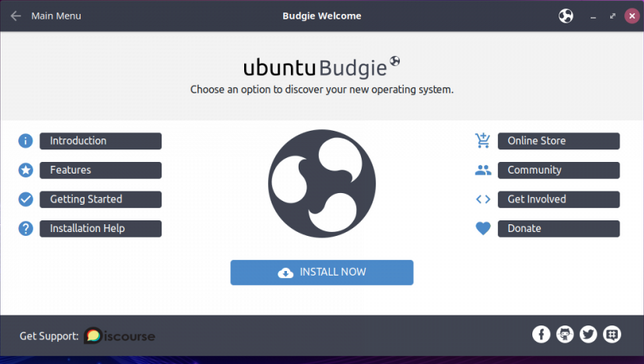Ubuntu Budgie

My recent reinstall of Ubuntu 21.04 (to fix some driver problems) reminded me there is more to the world than XMonad. I played with Gnome Shell 3 for a day, and it’s all right. I don’t hate it (and I didn’t hate Unity either).

My recent reinstall of Ubuntu 21.04 (to fix some driver problems) reminded me there is more to the world than XMonad. I played with Gnome Shell 3 for a day, and it’s all right. I don’t hate it (and I didn’t hate Unity either).
When I first switched from OS X to Ubuntu for my daily development work, one of the things I missed a lot was Divvy.
“Window throwing” is the purpose of Divvy (and Spectacle, which I later replaced it with). With a single keyboard shortcut, I can make the foreground window fill the right half of the screen. Or the left half. Or the bottom right quadrant. Or the whole screen. Any rectangle I care to define. I can even send it to the other monitor.
Last summer I switched from OS X to Ubuntu for my day-to-day work. It’s gone well. Here’s a condensed rundown of some of the things I’ve noticed.
Things I miss when using OS X:
Things I miss when using Linux:
Cross-platform bright spots:

In July, I switched from OS X to Ubuntu as my workday environment. For three years my personal MacBook Air had been pulling double duty, personal computer plus workstation at my job (each role with its respective user on the box). When the combined demands for disk space exceeded the 250GB SSD, I took that as a sign that it was time for a change. I work outside my office enough that an external HD wasn’t a practical solution, and a USB key is too slow.
So, I requested a Windows laptop from the company stash. Step one: wipe Windows off it. Step two: install Ubuntu 14.04.
Here are some highlights and hopefully useful details about the switch and the new setup.
During a quest for things that might make using my spare laptop – an old 800MHz, 256MB thing running Ubuntu – a more zippy experience, I came across “wmii”. It’s a lightweight tiling window manager with a lot of auto-sizing and keyboard control features. I’m really liking it. This laptop has never felt so responsive.
Other similar tools include dwm, xmonad, Ion, and ratpoison. Of the lot I’ve only tried dwm, which was cool but a little too minimal (its customization method, by design, is edit-source-and-recompile). I’m looking forward to trying xmonad once a package makes it into the Ubuntu repositories.